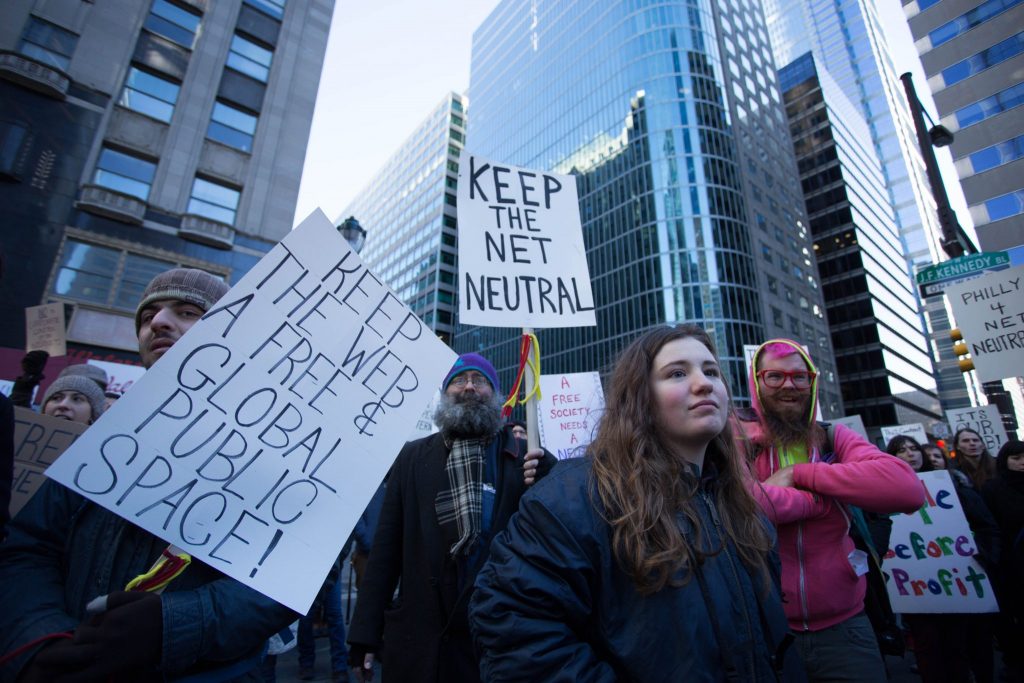In April 2017, the Federal Communications Commission announced its intention to stop honoring the 2015 ruling on net neutrality in the United States. In mid-December, the FCC did indeed vote to overturn the net neutrality ruling.
What is net neutrality?
Net neutrality is, or rather was, the right of all individuals to have equal and open access to the sites and services available via the Internet. Up until now, Internet service providers (ISPs) have not been allowed to manipulate the services available. That is all about to change.
Back to the beginning of time

Let’s reflect back to the invention of the Internet. Personally, I don’t subscribe to the term “invention” since many components of the Internet existed long before the idea of personal and corporate uses were discovered. That aside, the idea was that the Internet would allow everyone full access, thereby encouraging creativity and entrepreneurship. Naturally, corporate profit-seekers worked hard to capitalize on this new tool and in 2015 net neutrality laws were put in place in the U.S. to ensure the continued open access to all things Internet.
In Canada, net neutrality rules are governed by the Canadian Radio-television and Telecommunications Commission (CRTC), which adopted their approach to net neutrality in October 2009. While Canada’s approach is considered to be rather strong, they are really more about transparency and require ISPs to give adequate notice of changes and to ensure that detailed information is posted and available. Long story short, Canadians have long been at the mercy of profit-maximizing ISPs.
Back in the USA
Today, the current head of the FCC, Ajit Pai, is of the belief that it is not the mandate of the FCC to police organizational business models and that by doing so they are in essence limiting competitiveness. I would like to take a moment to reference the mission of the FCC. It states, “make available so far as possible, to all the people of the United States, without discrimination on the basis of race, color, religion, national origin, or sex, rapid, efficient, nationwide, and worldwide wire and radio communication services with adequate facilities at reasonable charges.” Now, I do realize that I am just a girl, sitting in front of a computer, trying to interpret legal-speak, but I am pretty sure that this states that the mandate of the FCC is to police organizational business models that seek to maximize profit at the expense of the consumer.
The impact on consumers
The release of the obligation for net neutrality could mean that U.S. consumers end up with an Internet that works similar to the offerings from today’s cable companies whereby subscribers are required to pay a premium to access the sites that they desire or require. The result being a complex choice of combinations of speed, service, and cost that the consumer must filter through and ultimately agree to a term in order to obtain the “best and one time only price.”
Canadians will start to feel the impact in a couple of ways. Cost increases for services such as Spotify and Netflix are inevitable as those services will be impacted by increased costs for their service to operate at a functional speed. For organizational business models, increasingly higher costs will be incurred to ensure that your website is accessible and searchable. Indeed, it seems that the stage is being set for double-dipping whereby the consumer will be charged more for less access and enterprise environments will be required to pay a premium in order for consumers to access their services through an ISP.
For organizations that depend on web tools for revenue generation, just like the home consumer, the impact will be the manipulation of the fees required for adequate speed. And if you subscribe to a Software as a Service cloud model, well, you get the picture. Your SaaS provider will most likely be increasing their fees to cover their increased costs, and to ensure that you can access web browsers with sufficient speed, you may be revisiting your agreement with your ISP.
One more note for Canadians

Bell Canada, a Canadian ISP is reported to be leading the charge for the creation of an agency that would track and block any sites that provide access to any pirated materials. They are actively soliciting other Canadian ISPs to back up their efforts to create a not-for-profit organization for this purpose. It will be interesting to see their legal interpretation of “pirated materials.”
Let’s not forget our friends across the pond
As a result of the FCC overturning the net neutrality ruling, the UK will be impacted in much the same way as Canada. But the real threat is that once ISPs figure out the formula to increase revenue and profit, there is no question that other countries will follow suit.
Possibly some good news
It would seem that if ISP providers are going to limit the sites one can access, perhaps they will create a corporate offering that eliminates access to sites that employers would prefer their employees not access. This could, in fact, save some of the cost of employee monitoring and lost productivity. So, perhaps all is not lost. That said, be prepared to pay a premium for this service.
The bottom line
While this might be a good time to invest in ISP stock, no matter how you look at it this is going to hit us all in the pocketbook.
Photo credit: Shutterstock



